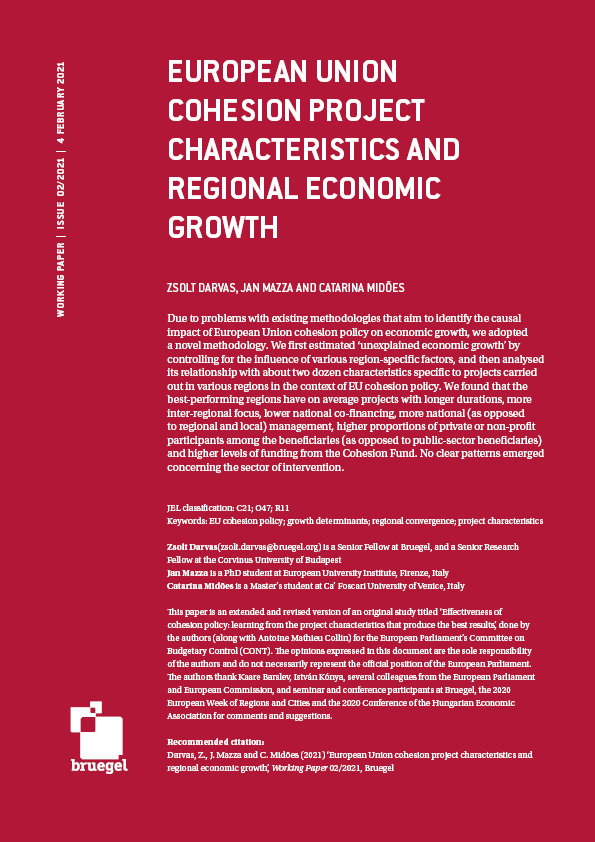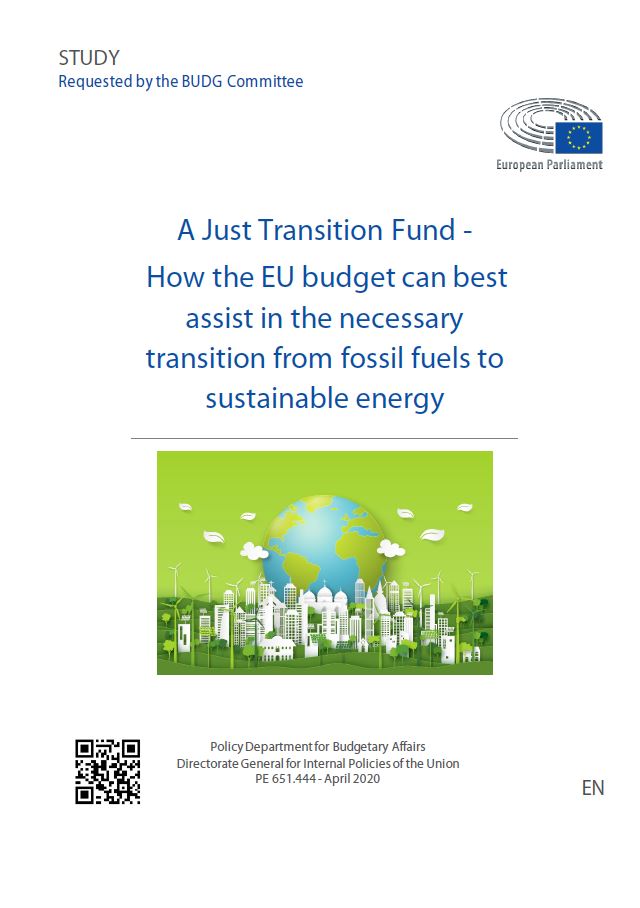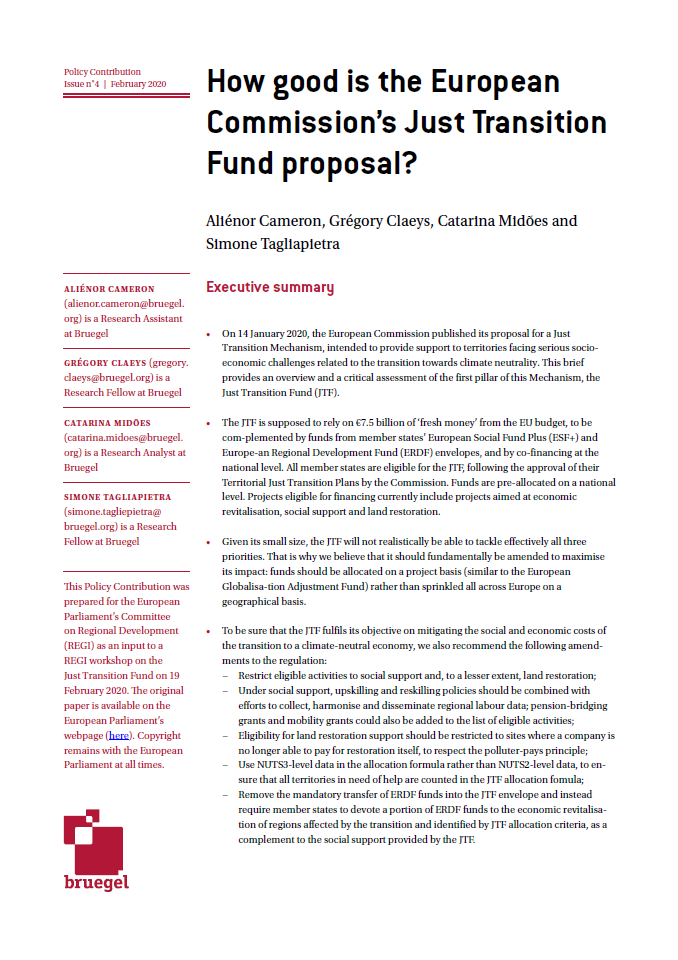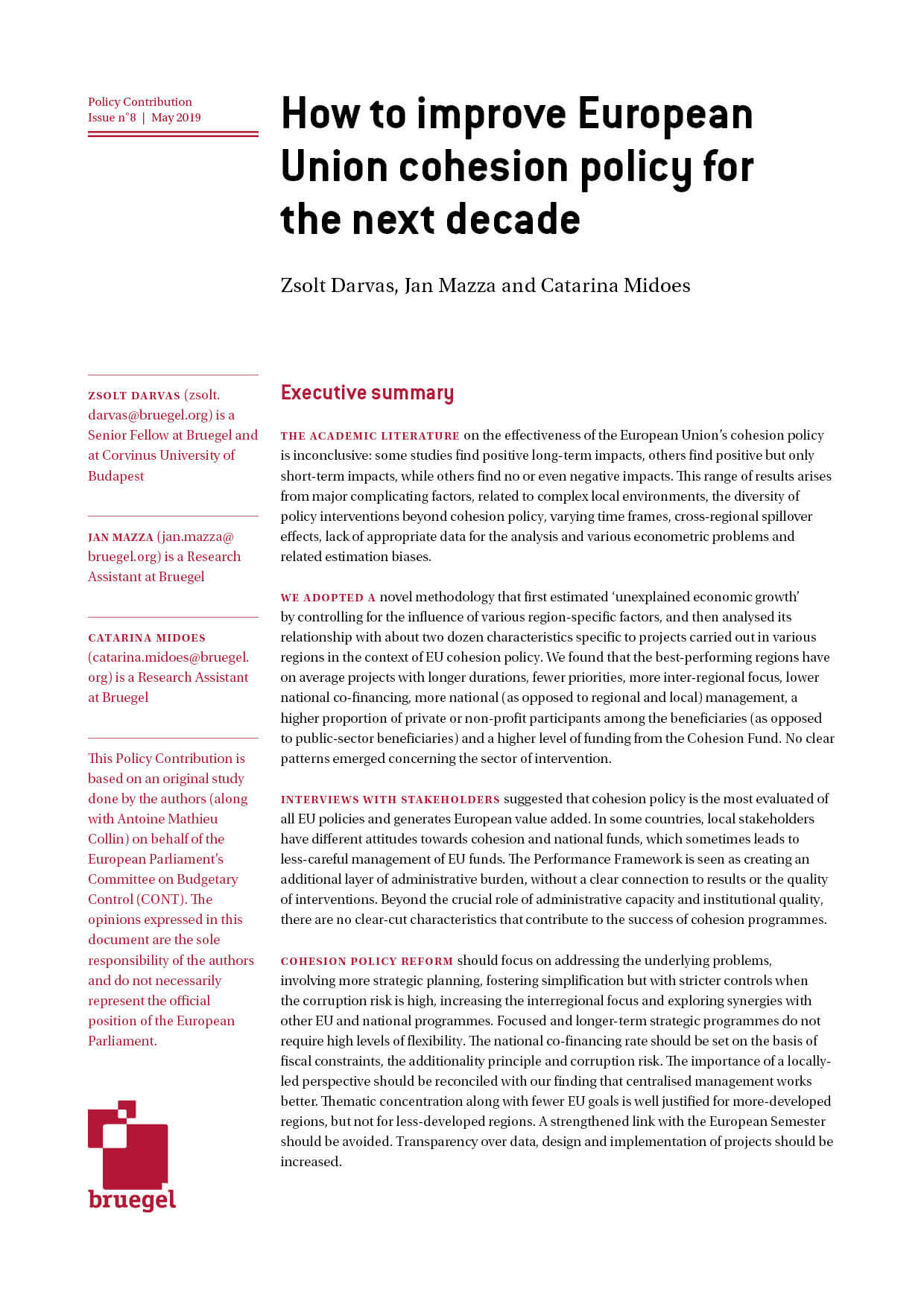Former scholars

Catarina Midões
Research Analyst
Twitter: @CatarinaMidoes
Catarina Midões works at Bruegel as a Research Analyst, where her research is centred on Better Regulation in EU law-making, Competition Policy and Cohesion Policy. Catarina holds an MSc in Econometrics and Operations Research with a Specialisation in Econometrics from Maastricht University and a BSc in Economics from Nova SBE. Her research work has been focused in inequality, ex-post impact evaluation of public policy and inference techniques.
Before joining Bruegel, Catarina worked as an Economic Analyst at Oxera, where she focused on efficiency benchmarking in the regulated utility markets, using Stochastic Frontier Analysis and Data Envelopment Analysis, and on transport economics, in ex-ante evaluation of transport projects and estimation of public transport demand elasticities.
Catarina also completed an internship in the European Commission’s Joint Research Center, in the Competence Centre on Microeconomic Evaluation, where she focused on implementation of Structural Reforms. Catarina also worked as a Research Assistant in Nova School of Business and Economics, as part of the research centre NOVAFRICA.
She is fluent in Portuguese, English and Spanish and has a working knowledge of Italian.












